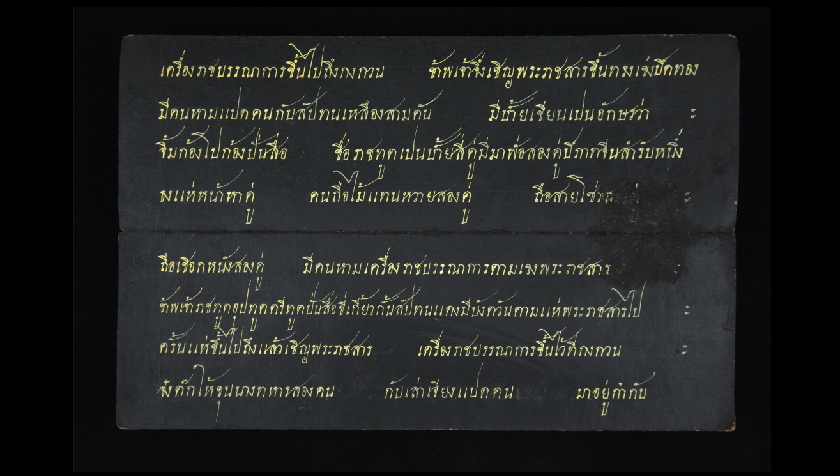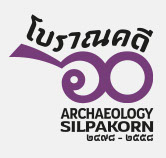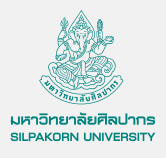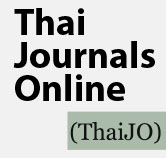
คำให้การสมัยพระบาทสมเด็จพระนั่งเกล้าเจ้าอยู่หัวที่เกี่ยวกับเหตุการณ์ยุคล่าอาณานิคม ในจีน พม่า เวียดนาม และอินโดนีเซีย
Affidavits regarding the events in China, Burma, Vietnam and Indonesia during the reign of King Rama III
โดย ธนโชติ เกียรติณภัทร / By Thanachot Keatnapat
Damrong Journal, Vol 14, No.2, 2015
บทคัดย่อ:
คำให้การในสมัยพระบาทสมเด็จพระนั่งเกล้าเจ้าอยู่หัว ถือเป็นหลักฐานสำคัญที่สะท้อนให้เห็นถึงเหตุการณ์บางส่วนทางประวัติศาสตร์ในช่วงระยะเวลาดังกล่าว เนื่องจากเป็นเอกสารที่รัฐจัดทำขึ้นโดยจดบันทึกจากปากคำของผู้ให้การที่มีส่วนรู้เห็น หรืออยู่ในเหตุการณ์นั้นๆ จากการศึกษาพบว่ามีคำให้การจำนวน 8 เรื่องที่เล่าเหตุการณ์เกี่ยวกับการล่าอาณานิคมของชาติตะวันตกในจีนและดินแดนเอเชียตะวันออกเฉียงใต้ 4 เหตุการณ์คือ 1) อิทธิพลของอังกฤษในพม่า พบในคำให้การที่ผู้ให้การได้เดินทางไปยังเมืองเมาะตำเลิมเพื่อสืบราชการ จึงพบเห็นการปกครองของอังกฤษในเมืองเมาะตำเลิมหลังจากทำศึกชนะพม่า 2) อิทธิพลของอังกฤษในจีน พบในคำให้การทูตที่เดินทางไปยังปักกิ่ง ราชทูตไทยสอบถามเกี่ยวกับเหตุการณ์อังกฤษรบจีนในสงครามฝิ่น 3) อิทธิพลของฝรั่งเศสในเวียดนาม พบในคำให้การที่ผู้ให้การเดินทางไปสืบราชการเมืองญวน กล่าวถึงความขัดแย้งทางศาสนาในเวียดนามที่พระเจ้าแผ่นดินต่อต้านคริสต์ศาสนา จึงทำให้เกิดสงคราม และ 4) อิทธิพลของฮอลันดาในอินโดนีเซีย (บาหลี) ซึ่งเนื้อหาในคำให้การกล่าวถึงสงครามขยายอาณาเขตของฮอลันดาในอินโดนีเซียไปยังเกาะบาหลีเมื่อ พ.ศ. 2389 เรื่องราวที่บันทึกไว้ในคำให้การเหล่านี้ทำให้เห็นว่าชนชั้นปกครองของสยามในขณะนั้นได้รับรู้เรื่องราวภัยการล่าอาณานิคมของชาติตะวันตก
ABSTRACT:
Affidavits during the period of King Rama III are evidence of great importance which reflect certain historic events at that time. These were documents produced by the government through the collection of affidavits given by relevant or contemporary witnesses. Following the study, there are eight affidavits which narrate westerners’ colonization in China and Southeast Asia. The four events are 1) The British influence in Burma found in the affidavits given bywitnesses traveling to Mo Tum Lerm tocollect governmental intelligence thus witnessing British governance in Mo Tum Lerm after defeating Burma in the war. 2) The British influence in China found in affidavits by ambassadors travelling to Beijing, regarding Thai ambassadors’ inquiry about when Britain fought with China in the Opium Wars. 3) The French influence in Vietnam found in affidavits given by witnesses travelling for intelligence collection in Vietnam, mainly concerning the religious conflicts in Vietnam in which the Monarchs objected to Christianity resulting in various conflicts and 4) The influence of Holland in Indonesia (Bali) which affidavits record information regarding the colonial war between Holland and Indonesia (Bali)in 1846. The stories recorded in these affidavits indicate that the ruling class of Siam were then aware of the threat western colonization posed.











